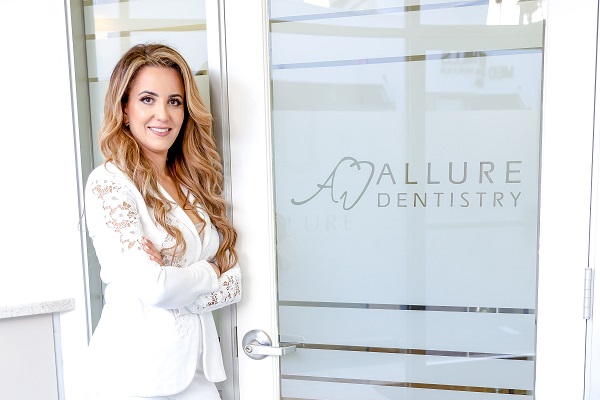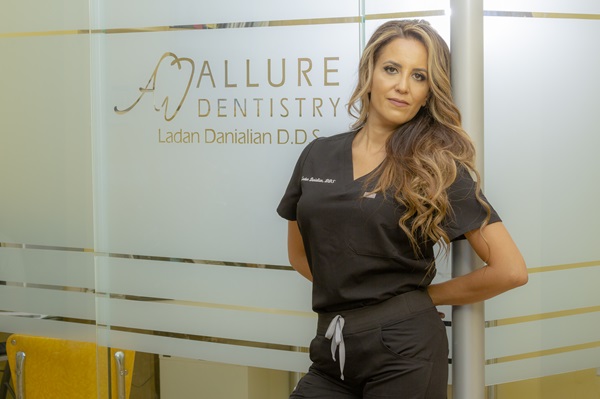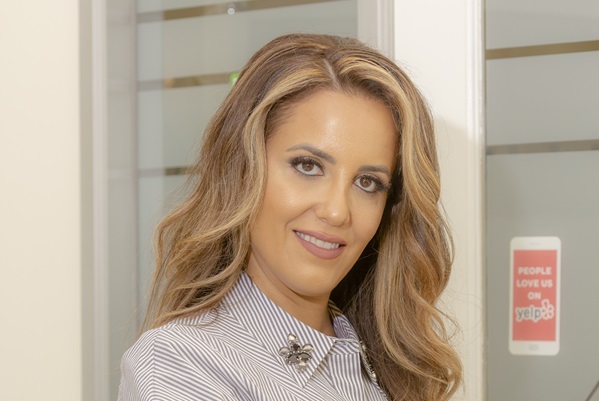Laser Dentistry: An Alternative to Traditional Dental Treatment

The use of laser dentistry to treat a variety of dental issues has been commercially available since 1989. Lasers are a less painful and more efficient option than the drills and tools used in traditional dental treatment procedures. Many patients also feel more comfortable with the sounds and feel of laser treatment. Laser treatment options even help make proper dental care more doable for those people with severe anxiety or fear of going to the dentist.
So what exactly is laser dentistry and how does it work? The word laser is an acronym that stands for light amplification by stimulated emission of radiation. This amplified light stream is usually very bright and very precise. Laser dental treatment is the use of specially formed lasers to perform specific dental procedures.
Treatment with a dental laser incorporates two basic types of procedures: hard tissue and soft tissue. Dentists use different sizes and types of lasers to accomplish various hard and soft tissue dental tasks. Each different laser also utilizes a unique light wavelength that is tailored for each specific dental exercise and type of tissue.
Hard tissue procedures
Hard tissue lasers are used primarily for and on teeth. These lasers cut through the calcium phosphate in the teeth, removing small amounts of hard tissue for the following procedures.
Treating cavities
Lasers can be used to find cavities early by detecting evidence of decay. For preparing the tooth and filling cavities, traditional drills can be replaced with a laser treatment that kills the bacteria and assists with the long-term health of the root. Lasers also help lessen the occurrence of damage to any surrounding tissues during these procedures.
Treating sensitivity
Laser dentistry can treat teeth that are sensitive to hot and cold sensations. The laser's focused beam of light is applied to the affected tooth, sealing tubules on the root of the tooth to lessen the painful effects of hypersensitivity. The effects are generally immediate and require little to no recovery period.
Tooth whitening
Whitening procedures conducted in the dental office can be enhanced through the use of lasers. A solution of peroxide bleach is applied to the surface of the tooth and activated by the laser, which significantly accelerates the whitening process.
Soft tissue procedures
Soft tissue lasers utilize a light wavelength that is easily absorbed by water and hemoglobin, the molecule found in blood. The process of cutting into soft tissue and simultaneously sealing exposed blood vessels is ideally suited for this type of laser. Bleeding is kept to a minimum with soft tissue lasers and post-procedure healing is usually quicker than with traditional methods.
Reshaping gum tissue
Soft tissue lasers are used in the process of reshaping gum tissue for the treatment of a "gummy smile," characterized by a long gum that covers much of the tooth. For dental restorations, reshaping the gums is beneficial to create a healthier structure for the tooth.
Soft tissue folds
Ill-fitting dentures can be remedied by lasers that can remove soft tissue folds. When performed with a laser, these procedures often happen painlessly without the need for sutures or pain medications. They also require less healing time, if any, for patients to regain full use of their dentures and greater comfort in their mouths.
Tongue frenulum attachment
The frenulum is the skin fold under the front portion of the tongue. For patients with a tight or thick frenulum, a laser frenectomy is a beneficial option. This treatment assists children whose frenulum problems cause issues with breastfeeding, speech, or being "tongue-tied."
Other soft-tissue laser benefits
Laser dentistry varies in price depending on the procedure. There are a variety of additional uses for laser treatments, including:
- Removing benign tumors
- Treating sleep apnea
- Viewing tissue inside the gums
- Treating temporomandibular joint (TMJ) dysfunction
- Regenerating nerves, blood vessels, and scars
- Treating canker and cold sores
Conclusion
Laser dentistry carries relatively minor risks and can have substantial rewards. Both hard tissue lasers and soft tissue lasers offer many advantages over traditional forms of dental treatment. Bleeding is minimized, wounds heal more quickly, and the chance for infection is much lower due to the laser's sterilization process. Lasers also help patients feel more at ease during and less fearful of many dental procedures. By using the right protective equipment and following proper usage guidelines, dentists can use lasers to more efficiently treat many dental conditions and help patients everywhere receive suitable dental treatment.
Request an appointment here: https://www.alluredentistry.com or call Allure Dentistry at (310) 683-5321 for an appointment in our Los Angeles office.
Check out what others are saying about our dental services on Yelp: Laser Dentistry in Los Angeles, CA.
Recent Posts
Curious about laser dentistry? Read on to learn more about this type of treatment. Medical professionals may modify or remove tiny quantities of tissue using lasers. While laser surgery has numerous applications outside of dentistry, the vast majority of patients had never ever heard of laser dentistry until they needed it. Dentists employ lasers for…
Laser dentistry may be the ideal choice for people looking for a new approach to dental care. The dentist uses lasers for a number of dental treatments. It provides a precise and sophisticated method of treating patients' oral health problems comfortably and effectively.Dentists use lasers to alter or remove hard or soft tissues in the…
We can treat patients who have sensitive teeth with laser dentistry to minimize the possibility of pain.Instead of having to use traditional metal tools to clean your teeth, we can use laser dentistry. Along with enhancing the overall cleaning process, laser dentistry can also help with various procedures in the dental office. With laser dentistry,…
One of the most common orthodontic treatments that a general dentist offers is Invisalign®. This popular way to straighten crooked or crowded teeth offers individuals flexibility and ease while undergoing a discreet method of treatment. With Invisalign®, there are a lot of things to know, as it is a newer orthodontic treatment with a totally different technology…

